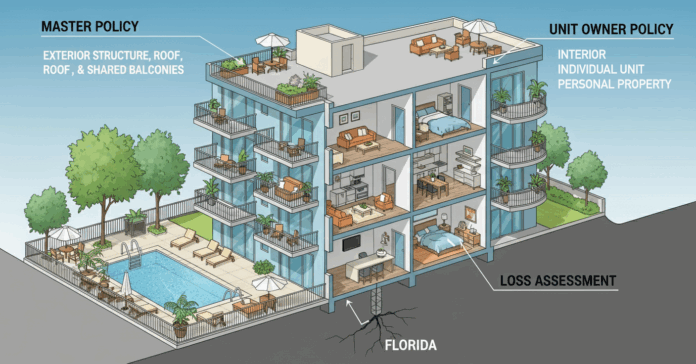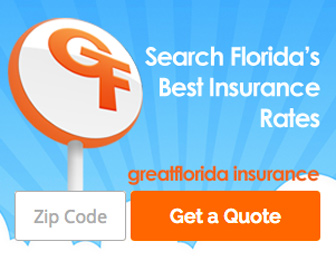Owning a condo in Florida means sharing costs with your condo association. One cost nobody likes is a special (loss) assessment. This article explains what those are, what state law requires, what recent laws changed, and how you can protect yourself.
What Is Special (Loss) Assessment Coverage?
- A special assessment is a fee your condo association may charge when the cost to repair or replace common areas or structural parts of the building exceeds what the association or its insurance covers.
- A loss assessment is a special assessment caused by a covered event (like a storm, fire, or other peril covered by your policy). If the association’s master policy or reserves fall short, you may be responsible for a share of the excess cost.
What Florida Law Requires
Here are the key legal rules for Florida condo unit‑owners:
| Requirement | Details |
|---|---|
| Minimum coverage limit | At least $2,000 loss assessment coverage in your unit owner (HO‑6 or similar) policy for all assessments from the same covered loss. Florida Legislature+2Merlin Law Group+2 |
| Max deductible | Deductible for that coverage can be no more than $250 per direct loss. Florida Legislature |
| Excess status | Loss assessment coverage is “excess” to any other coverage that may apply. Your policy must say that it covers only amounts left after other applicable insurance or master policy limits. Florida Legislature |
Why the Minimum May Not Be Enough
- Common area repairs after storms, structural integrity studies, or mandated safety upgrades have driven special assessments well above the $2,000 minimum. Axios+2Oyer Insurance+2
- Building insurance (master policy) may have high deductibles or limited perils covered. If damage isn’t covered, or the coverage limit is too low, owners often get hit with large assessment bills.
- New laws are trying to close the gaps (e.g. appraisals every 36 months to ensure adequate building insurance) but until everyone complies, risk remains. Perez Mayoral, P.A.
Recent Changes in Florida You Should Know
- HB 913 (signed 2025): now requires independent insurance appraisals every 36 months. Helps ensure master policy insures for “adequate property insurance” so fewer surprises. Perez Mayoral, P.A.
- Financial relief law effective July 1, 2025: gives associations more flexibility with reserve funding, allows use of loans/credit lines, postponing some reserve contributions, and possible exemptions/delays for some buildings. AP News
- Increased transparency: Owners now have more rights to see documents, approve budgets, understand what the master policy covers. That helps in anticipating potential assessments.
Checklist: How Condo Owners Can Protect Themselves
- Check your HO‑6 / unit owner policy
Make sure it includes loss assessment coverage. Confirm whether it’s using the legal minimum or more. - Know your master policy
Ask the association for the master policy details: perils covered, deductibles, limits. If coverage is too low or very restrictive, your assessment risk increases. - Consider higher loss assessment limits
Paying more for an endorsement to increase the amount above $2,000 is often cost‑effective. Even moving to $10,000, $25,000 or more can make a huge difference. - Review association’s reserve study and inspection reports
Laws (like HB 913) require insurance appraisals every 36 months. Also, older buildings need milestone inspections / structural integrity studies. Know what repairs may be coming. - Budget for assessments
Include a cushion in your personal budget (savings) in case a special assessment comes up. - Stay involved
Attend board meetings, read official records, vote on budgets and insurance policy decisions. Having a say in what coverage is chosen helps protect your interest.
What to Do If You Face a Big Special Assessment
- Review whether the assessment is due to a covered peril; if not, loss‑assessment insurance likely won’t help.
- Talk with your GreatFlorida Insurance Agent about whether your assessment qualifies under your policy.
- Explore payment plans or financing help with the association, especially under new laws that allow flexible funding.
- Keep proof of policy, endorsements, master policy limits, and legal changes at hand.
Florida Compliance Note
This article discusses Florida state law and insurance requirements. For legal advice or specific policy language, consult your HOA, a qualified insurance professional or attorney. The Florida Office of Insurance Regulation (OIR) regulates insurance policies and the Florida Condominium Act (§718) affects association duties.
When to Contact GreatFlorida Insurance Agency
If you are a condo unit owner in Florida and want help with:
- Reviewing or upgrading your loss assessment / special assessment coverage
- Understanding how recent laws (HB 913, safety laws) affect your coverage
- Choosing policy options to reduce risk of large unexpected assessments
…contact your nearest GreatFlorida Insurance Agency to get personalized advice.



